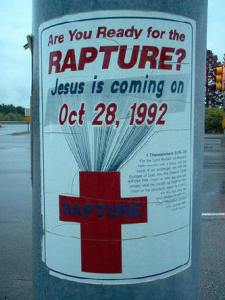Israel was always cognizant of the special presence of God among them. God dwelt among them when they travelled in the wilderness and God took up residence in the Tabernacle. This was by God’s design and at least in my mind indicates the primary way in which God wants to dwell; i.e., he wants to go with His people wherever they go. However, Israel chooses to localize God and put Him in a box by constructing a temple. God plays their game and grants their wish. He had gone from being the God who went with them everywhere, to the God who must be gone to. But the point is the same, that God chooses to dwell with His people. Isaiah is the prophet who most forcefully expresses this dwelling in terms of the Holy Spirit.
10 Yet they rebelled
and grieved his Holy Spirit.
So he turned and became their enemy
and he himself fought against them.
11 Then his people recalled [a] the days of old,
the days of Moses and his people—
where is he who brought them through the sea,
with the shepherd of his flock?
Where is he who set
his Holy Spirit among them,
12 who sent his glorious arm of power
to be at Moses’ right hand,
who divided the waters before them,
to gain for himself everlasting renown,
13 who led them through the depths?
Like a horse in open country,
they did not stumble;
14 like cattle that go down to the plain,
they were given rest by the Spirit of the LORD.
This is how you guided your people
to make for yourself a glorious name.” (Isaiah 63:10-14)
Though Israel was blessed with this presence (and consequently abused it), they were also made to experience it’s loss. Ezekiel 10 vividly portrays the departure of God’s glory from the temple. Subsequent passages within Ezekiel’s work will reassure Israel that God’s presence will return to the people. Ezekiel intentionally links this return of God’s presence with the bestowal of His Spirit (see all the Ezekiel passages referenced thus far in this short series). He says in 37:27, “I will dwell among them and they shall be my people.”
The longing. The hope. The painful awareness that things are not as they should be. Israel was a people desperate for God’s gracious action; his glorious new age; his awaited Messiah. Ah how they longed for God’s future. Oh that God might end the drought, that he might bless all people (though this hope was not readily embraced), that he might renew his covenant and restore his presence. What a beautiful foundation for the message of the cross. And the most shocking thing to me–the foundational role of the Holy Spirit in all that was to transpire. A Person whom I have heard so little about.
Next we will quickly note the obvious ways in which the New Testament picks up on these themes.


 THE DROUGHT OF THE SPIRIT
THE DROUGHT OF THE SPIRIT Before diving in to some specifics, I think it necessary to say some things first about eschatology in general. Eschatology is a big fancy word to indicate the study, discussion or beliefs about things pertaining to the end, or the next age (whatever it may be), etc. So words like rapture, second-coming, armageddon and others naturally come to your mind when you think of this topic. I think it important that we know what this word means because it makes discussing these things much easier (it’s easier to say “eschatology” rather than constantly repeating “things pertaining to the end, or the coming age, etc.”). Without providing substantiation at this time, let me just say that I believe most modern eschatological beliefs are just that–modern. The Old and New Testament’s vision of the coming age differs radically from that, for example, of the Left Behind series of books. But more on that anon.
Before diving in to some specifics, I think it necessary to say some things first about eschatology in general. Eschatology is a big fancy word to indicate the study, discussion or beliefs about things pertaining to the end, or the next age (whatever it may be), etc. So words like rapture, second-coming, armageddon and others naturally come to your mind when you think of this topic. I think it important that we know what this word means because it makes discussing these things much easier (it’s easier to say “eschatology” rather than constantly repeating “things pertaining to the end, or the coming age, etc.”). Without providing substantiation at this time, let me just say that I believe most modern eschatological beliefs are just that–modern. The Old and New Testament’s vision of the coming age differs radically from that, for example, of the Left Behind series of books. But more on that anon.